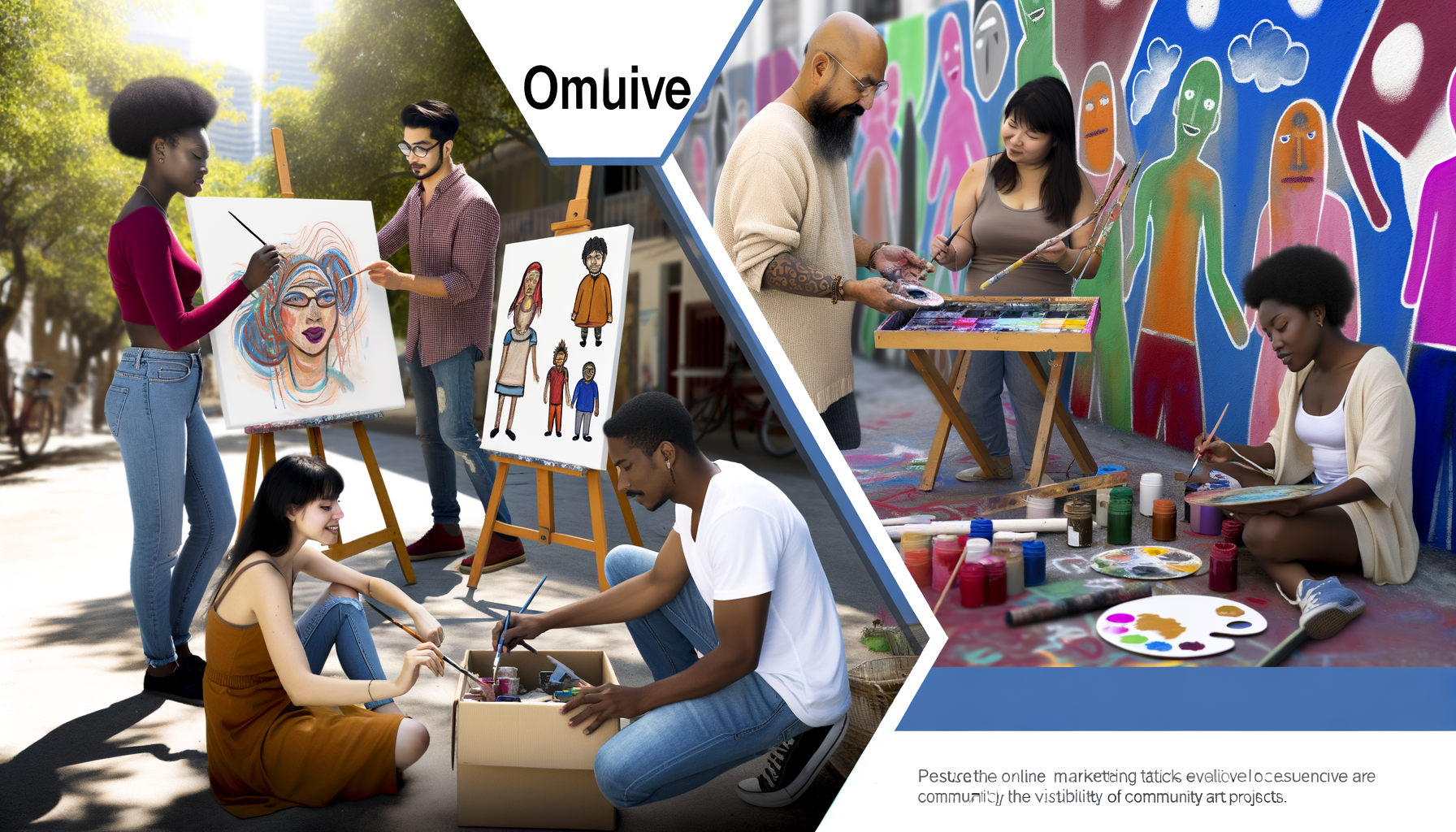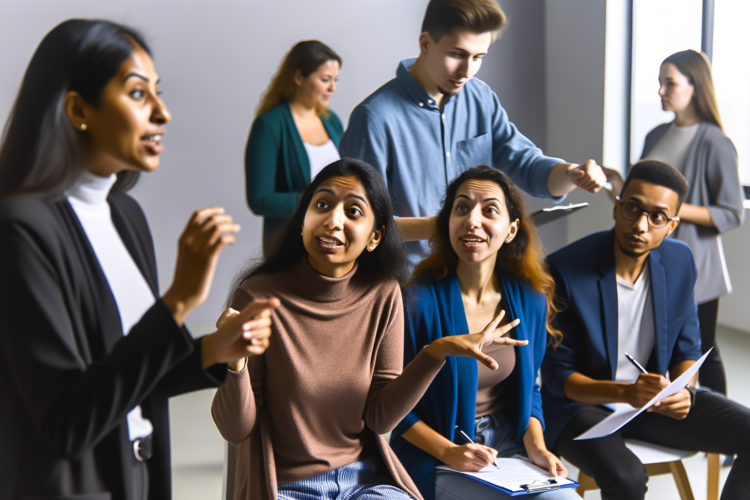
Using SEO for a community arts project involves optimizing your online content so that search engines like Google are more likely to rank your site prominently on Search Engine Results Pages (SERPs). To do this effectively, you’ll want to incorporate targeted keywords, create high-quality and relevant content, optimize your website’s structure and performance, build backlinks, and leverage social media and local listings. By applying SEO strategies, you can improve the online visibility of your community arts project, making it easier for potential participants, supporters, and donors to find your website and engage with your mission.
Understanding SEO Basics for a Community Arts Project
Before diving into the nitty-gritty of SEO for your community arts project, it’s important to grasp the core principles of search engine optimization. SEO is the practice of increasing both the quality and quantity of website traffic, as well as exposure to your brand, through non-paid (also known as “organic”) search engine results.
The Importance of Keywords
Keywords are at the heart of SEO. They are the words and phrases that searchers enter into search engines. For a community arts project, keywords could range from “local art classes” to “community theatre events.” To identify the right keywords for your project, consider using tools like Google Ads Keyword Planner or Ubersuggest. These tools can provide insights into the search volume and competition for specific keywords.
Creating Relevant Content
Once you’ve identified your target keywords, it’s time to create content that incorporates these terms naturally. This content should not just be keyword-rich but also valuable and engaging to your audience. It could take the form of blog posts about upcoming events, artist interviews, how-to guides, or galleries of past projects. Remember, quality trumps quantity, so focus on delivering useful information that resonates with your community.
On-Site Optimization Techniques
On-site optimization refers to all the measures that can be taken directly within the website to improve its position in the search rankings. This includes optimizing your titles and meta descriptions to include your main keywords, ensuring your site has a clear and logical structure (with a well-organized hierarchy of headings), and optimizing your images with descriptive alt tags.
Technical SEO Aspects
The technical side of SEO can’t be overlooked. This includes ensuring your site loads quickly, is mobile-friendly, and has no broken links or duplicate content. Use tools like Google’s PageSpeed Insights and Mobile-Friendly Test to evaluate your website’s performance in these areas.
Advanced SEO Strategies for Enhanced Visibility
To take your community arts project’s SEO to the next level, you should look beyond the basics and into more advanced tactics.
Link Building
Backlinks, which are links from other websites to your site, are a critical ranking factor in SEO. When other reputable sites link to your project’s website, it signals to search engines that your content is valuable and authoritative. You can build backlinks by reaching out to local news outlets, art bloggers, and partner organizations to feature your project or events.
Utilizing Social Media
While social media does not have a direct impact on SEO rankings, its power lies in the ability to amplify the reach of your content and generate traffic to your site. Platforms like Instagram and Facebook are ideal for visual arts projects, while Twitter can help spark conversation about your initiatives. Use social media to share your content, engage with your audience, and drive visitors to your website.
Local SEO Tactics
For community-focused projects, local SEO is hugely important. Make sure your project is listed on Google My Business, which helps in appearing in local search results and Google Maps. Encourage reviews from participants and supporters, as positive reviews can bolster your search engine credibility.
Measuring Success and Adapting Strategies
The landscape of SEO is constantly changing, and it’s important to measure your results and adapt your strategies accordingly.
Analytics and Tracking
Utilize tools like Google Analytics to track your website’s traffic, understand how users are finding and interacting with your site, and identify the most popular content. Keep an eye on your keyword rankings over time to see how your optimization efforts are affecting your visibility.
Adapting to Algorithm Changes
Search engine algorithms are always evolving, and what works today may not work tomorrow. Stay informed about the latest SEO trends and best practices, and be prepared to tweak your approach. This might involve refining your keywords, updating your content, or improving technical aspects of your site.
Finishing Thoughts
SEO for a community arts project requires an understanding of fundamental and advanced SEO principles. By identifying the right keywords, creating quality content, optimizing on-site elements, and leveraging link building and social media, you can increase the online visibility of your arts initiative. It’s a continuous process of measuring, learning, and adjusting, but the rewards in community engagement and support can be substantial. Remember that SEO is a marathon, not a sprint, and the lasting impact it can have on your project’s reach and success is well worth the effort invested.“`html
Frequently Asked Questions
What is SEO and why is it important for a community arts project?
SEO, or Search Engine Optimization, refers to the practice of improving a website to increase its visibility when people search for products or services related to the business in search engines. For a community arts project, using SEO can help attract more visitors to the project’s website, increase awareness, foster engagement, and support the growth and success of the project by making it more discoverable online.
How can I select the right keywords for my community arts project’s SEO?
Choosing the right keywords involves understanding the terms your target audience uses when looking for community arts events or projects. Start by brainstorming a list of relevant keywords related to your project – including the type of art, location, themes, and any unique offerings. Use online keyword research tools to gauge the popularity and competition for these terms, and integrate them into your website’s content, meta tags, and descriptions accordingly.
What are some effective on-page SEO strategies for a community arts project?
On-page SEO involves optimizing individual web pages to rank higher in search engines. For a community arts project, this can include using title tags and meta descriptions that incorporate target keywords, creating quality and relevant content, optimizing images with alt text, ensuring fast page loading speeds, and improving the user experience with a well-structured and mobile-friendly website design.
How can I use content marketing to improve the SEO for my community arts project?
Content marketing is about creating valuable, relevant content that draws people to your website. For a community arts project, this could include blog posts, artist interviews, project updates, and event information. Sharing this content can drive engagement, build community, and enhance visibility in search results. Additionally, using targeted keywords within your content can help search engines understand and rank your pages better.
What role do backlinks play in SEO for community arts projects?
Backlinks are links from other websites that lead to your site, and they play a significant role in SEO because they act as a vote of confidence from one site to another. For a community arts project, gaining backlinks from local news outlets, art blogs, and community websites can boost search engine credibility and rank. However, it’s important to pursue quality backlinks from reputable and relevant sites.
Can social media impact the SEO of my community arts project?
While social media signals do not directly impact search engine rankings, they can indirectly affect SEO by increasing online visibility and traffic to your website. Promoting your community arts project on social media can encourage more shares and engagement, which may lead to more backlinks and a broader audience reach. It’s also a great platform to disseminate content and create a community around your project.
Should I consider local SEO for my community arts project?
Local SEO is critical for community arts projects, especially if the project serves a specific geographic area. Optimizing for local SEO means targeting location-based keywords, creating a Google My Business profile, encouraging local reviews, and ensuring your project is listed in local directories. These efforts help people in your area discover your project when they search for local art events or initiatives.
How do I measure the success of my SEO efforts for my community arts project?
To measure the success of your SEO efforts, use tools such as Google Analytics to track website traffic, search rankings, and user engagement. Pay attention to metrics like organic search traffic, bounce rate, page views, average session duration, and conversion rates. Additionally, keep an eye on the search engine ranking positions for your targeted keywords to understand how your optimization efforts are performing over time.
“`






